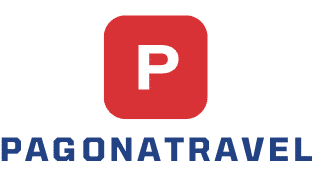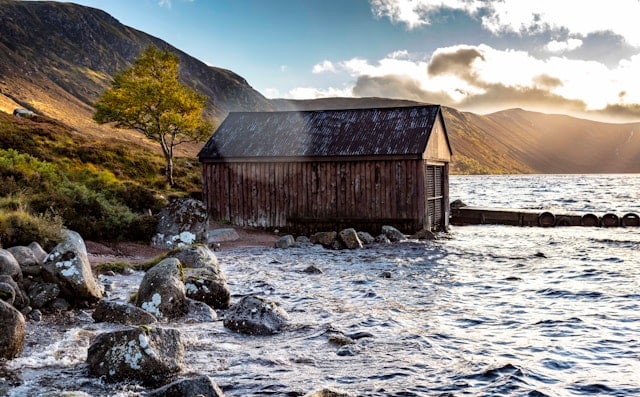In the bustling world of real estate, finding a sweet spot for maximizing profits is always a sought-after goal. The Scottish Highlands is a region that presents a unique opportunity for those willing to venture into the holiday homes market. Favorable tax conditions, a vibrant tourism industry, and attractive landscapes create a lucrative market for potential investors. Yet, like any other investment, it is crucial to navigate this sphere with the right strategies.
Understanding the Scottish Holiday Homes Market
Before setting out to invest in holiday homes in the Scotland region, it is vital to understand the dynamics at play in this market. The Scottish holiday homes market is not only driven by domestic tourists but also by a large number of international guests. These guests are attracted by the enchanting landscapes, rich history, and cultural experiences that Scotland offers.
Have you seen this : How Can Real Estate Investors Utilize Augmented Reality for Virtual Property Tours?
Holiday homes can range from small cottages to large country houses, each offering a unique character and appeal to potential renters. In recent years, there has been increasing demand for self-catering accommodations which provide guests with more flexibility and privacy than traditional hotels.
Moreover, the Scottish council’s planning policies are generally favorable towards the development of new holiday homes, offering significant opportunities for investors. This is due to the council’s recognition of the vital role that tourism plays in the Scottish economy.
Have you seen this : Is Micro-Housing a Viable Solution to Urban Overcrowding in London?
However, it’s essential to note that different areas within the Scottish Highlands have different housing markets. For example, some areas are popular tourist destinations and thus have a high demand for holiday homes, while others are more secluded and quiet, which may appeal to a different type of guest.
Navigating Tax Implications
In Scotland, owning a second property such as a holiday home has certain tax implications. To maximize the returns on your investment, it’s crucial to understand these obligations and plan accordingly.
Firstly, those who own a second property in Scotland that is not their main residence are required to pay council tax. The amount of tax charged is based on the property’s valuation band, which is determined by the Assessor.
Additionally, if you let out your property as a self-catering accommodation for 140 days or more a year, it will be classified as a self-catering property for tax purposes. This means you’ll be liable for business rates instead of council tax. However, if you qualify for Small Business Bonus Scheme, you may be entitled to up to 100% relief on these rates.
Furthermore, if you generate rental income from your holiday home, you will need to declare this to HMRC and may have to pay income tax on this income. In addition, when you sell a second property, you may have to pay Capital Gains Tax on any profit you make.
Optimising Rental Yields
To maximise the returns on your holiday home investment, it’s crucial to optimise your rental yields. This entails balancing the cost of maintaining the property, setting competitive rental prices, and achieving high occupancy rates.
To keep your property in high demand, it’s vital to ensure it is well maintained and offers all the amenities that guests are looking for. This might involve investing in upgrades such as modern kitchens and bathrooms, high-speed internet, or outdoor entertaining areas.
Setting the right rental price is also crucial. Too high, and you may struggle to attract guests; too low, and you’ll compromise your returns. To help determine the optimal rental price, consider factors such as the location, size, and quality of the property, as well as rental prices for similar properties in the area.
Achieving high occupancy rates is another critical factor in maximising rental yields. This might involve offering special rates during off-peak times, advertising your property effectively, and providing an exceptional guest experience to encourage repeat bookings and positive reviews.
Investing in the Right Locations
Location is a key factor in the success of any real estate investment. When it comes to holiday homes in the Scottish Highlands, it’s important to invest in areas that are attractive to tourists.
Consider factors such as proximity to popular tourist attractions, accessibility, availability of amenities, and the natural beauty of the surroundings. Areas near the coast or with stunning mountain views, for example, are often popular choices.
It’s also important to consider the local housing market. Look for areas where property prices are relatively stable and showing positive trends. This will not only help ensure stable rental income but also provide the potential for capital growth in the long term.
While investing in holiday homes in the Scottish Highlands can be a profitable venture, it’s crucial to approach it with the right strategies. By understanding the market, navigating tax implications, optimising rental yields, and investing in the right locations, you can maximise the returns on your investment.
Marketing Your Property Efficiently
In the crowded holiday property market, standing out is crucial. An effective marketing strategy is key in generating interest and driving bookings to your holiday home in the Scottish Highlands.
Creating an appealing and informative listing is the first step. Highlight the unique features of your property, whether it’s a rustic stone fireplace, a hot tub with a view, or a prime location close to a popular attraction like the Isle of Skye. Include high-quality photos that accurately represent your property.
Digital marketing should be a significant part of your strategy. Utilize online platforms popular with short term rentals, such as Airbnb and Booking.com, to reach a wide audience. Consider creating a website or social media pages for your holiday home to provide additional information and engage with potential guests.
Pricing is also a crucial factor that could sway a potential renter. Gauge the rental market in your area and adjust your rates accordingly. Seasonality plays a significant role in the tourism industry. Therefore, consider offering discounted prices during off-peak seasons to attract guests and maintain a steady income.
Lastly, positive reviews are gold in the peer-to-peer accommodation scene. Provide an exceptional guest experience to garner positive reviews, as they significantly increase the attractiveness of your property. This means ensuring that the house is clean, all amenities are functional, and guests’ queries or issues are promptly addressed.
Long Term Considerations
Investing in holiday homes in the Scottish Highlands is not a short-term venture; it requires a long-term perspective to truly reap the benefits.
Maintenance is a long-term consideration every property owner should bear in mind. Regular upkeep prevents minor issues from morphing into costly repairs. Landscaping, cleaning after each guest’s stay, and periodic checks for plumbing or electrical issues are some examples.
Another aspect is keeping abreast of changes in legislation. The Scottish government and local councils frequently review policies related to real estate and tourism. Being updated with policy changes, such as planning permission requirements or changes in council tax, ensures you remain compliant and helps you anticipate and adjust to changes that could affect your returns.
Lastly, consider the potential for capital appreciation. While rental income is a significant part of the return on investment, the increase in property value over time can substantially boost overall returns. Monitor the property market trends in your area and the Scottish Highlands more generally. This can inform your decisions when it might be a good time to invest in additional properties or when to sell.
Conclusion
Navigating the holiday homes market in the Scottish Highlands may seem daunting, but with careful planning and strategic decisions, it can be a profitable venture. It’s key to understand the market dynamics and the implications of council tax and other regulations. Effective marketing and a focus on providing an exceptional guest experience can optimise rental yields.
Moreover, a long-term perspective is essential. Regular maintenance, staying updated with policy changes, and keeping an eye on property market trends are crucial.
Investing in holiday homes is not just about property ownership; it’s about providing a memorable experience for those exploring Scotland’s breathtaking landscape. By doing so, you not only maximise your returns but also contribute to Scotland’s vibrant tourism industry.











